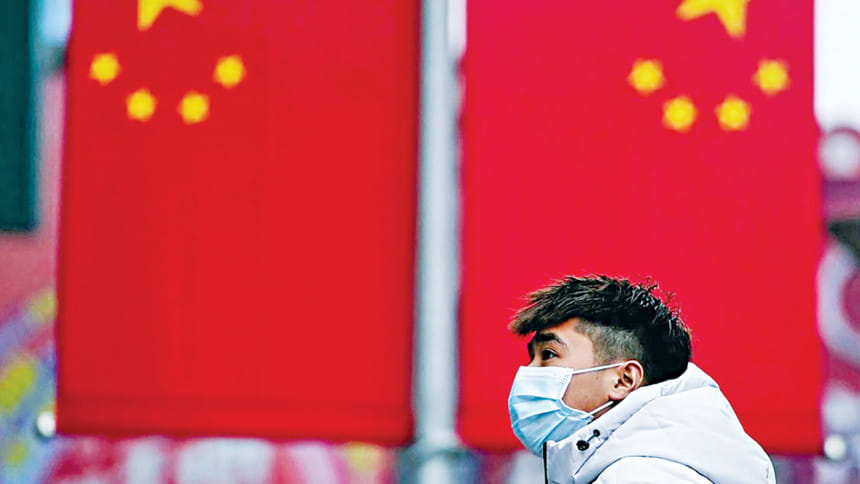Revisiting supply chain success through multi-sourcing

COVID-19 cracked open the vulnerabilities of global supply chains as it shook the long-established business models to its foundations that took corporations and governments across the globe decades to build.
As nations are grappling to contain a tiny virus, everything from lithium mines in Chile to semi-conductor makers of China's industrial capital came to a standstill.
A supply chain shock that was born in China became a global phenomenon with the blink of an eye.
The domino effects are contributing to the growing conviction that the world has slipped into its first major recession since the global financial crisis more than a decade ago.
Coronavirus spread has been leaving businesses around the globe counting the costs.
As a matter of fact, the US-China trade war had been affecting negatively the companies around the world as they completely rely on China for sourcing business.
A recent study shows the world's largest 1,000 companies or their suppliers own more than 12,000 facilities in the initial COVID-19 quarantine areas of China, Italy and South Korea.
China has been the biggest sourcing hub for companies in Asia, Africa, Europe and South America.
Even prior to the trade war, companies began to look for alternative sources to ensure their business continuity.
It has become harder for companies around the world to go for other countries for alternative sourcing destinations as China has robust infrastructure that is run by a skilled labour force and equipped with resource base.
But it is needless to mention that in China, while the infrastructure is good, compliance with law — including child labour, environmental and intellectual property laws – is a challenge.
After this COVID-19 crisis, it is going to be logical to expect companies to ask suppliers for improvements in social support and healthcare attention to its people as mandatory compliance.
The dependency on one country needs to be reduced. The outbreak has taught the world a lesson on how much they depend on China. Ford and Toyota stopped some of their vast Chinese assembly plans for an extra week, Apple is preparing a plan to re-route their supply chains and Starbucks closed thousands of their stores.
China has become so crucial to the American companies that some members of the Trump administration are citing this dependence as a justification for the trade war that forced American businesses to consider shifting their factories in China to countries with better relations with Washington.
Dominance of one country like China over the global market has grown astronomically in recent years partly due to the availability of large skilled human resources and its large consumer base.
Nevertheless, there are other emerging markets with better and even less expensive workers. Some of them are Brazil, Mexico, Indonesia, South-Korea, Turkey, Colombia, Indonesia, Vietnam, Egypt, Bangladesh and South Africa.
This is the case for developing countries in South Asia, Africa and South America. Global companies need to change their strategies to include new emerging markets that can be alternative sources for their businesses.
Taking into account three macroeconomic indicators -- GDP, purchasing power parity (PPP) and export growth rate -- we see that along with the BRIC nations, Mexico, Indonesia and South Korea are also considered favourably by the world markets for sourcing goods and services.
Moreover, countries such as the US have changed their trade agreements to make it more hospitable to multinational companies.
Companies also need to ensure that they have multiple sources of raw materials. The technological advancement of the world as a whole may also enable multinational companies to shift their sources from one country to another.
Dependency or over-reliance on a single country for business sources is also extremely risky. This is due to a variety of reasons key among them being the occurrence of unexpected diseases, epidemic, natural calamities, disasters, and political instability.
For instance, the outbreak of the COVID-19 in China has already cost many companies millions of dollars.
This is because many of the Chinese workers have been quarantined that led to sudden reduction in production.
Over-reliance on one country also leads to rising costs of labour due to increased demand. This is one of the reasons why China is slowly becoming an expensive source of labour for some categories of goods and services.
Dependency on one country may eventually lower a company's profit. This is because the government's trade policy may change and become highly unfavourable.
For instance, the trade war between China and the US has made the trade policy between the two countries less accommodating for global trade.
Raw materials are also finite. Hence, it is important for companies to diversify business sources.
Acquiring new sources is not easy either. There are many challenges such as language and cultural barriers that make it harder for companies in developing countries to work with certain countries.
The primary factors that companies need to explore before getting multiple sources include availability of skilled labour, cost of doing business in the country, availability of suitable partners and infrastructure.
A company should also ensure that it has more than one source at all times. For instance, if a company is involved in agricultural production, it should get raw materials from two or more countries.
This will ensure that there is continuous supply even when one source is not fully reliable.
The key focus of our sourcing strategies so far was to reduce cost in our quest to build a robust supply chain model. COVID-19 has brought uncertainty to every market we could possibly imagine. We should now introduce new business procedures to combat the post-pandemic challenges.
The writer is managing director of Paper Rhyme Advertising Ltd and can be reached at [email protected].

 For all latest news, follow The Daily Star's Google News channel.
For all latest news, follow The Daily Star's Google News channel. 



Comments